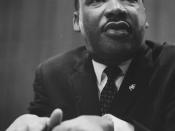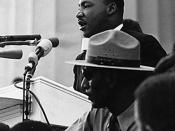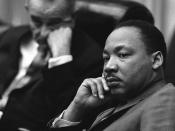Many social changes that were addressed in the 1960s are still the issues being confronted today. The '60s was a decade of social and political upheaval. In spite of all the turmoil, there were some positive results: the civil rights revolution, john f. Kennedy's bold vision of a new frontier, and the breathtaking advances in space, helped bring about progress and prosperity. However, much was negative: student and anti-war protest movements, political assassinations, and ghetto riots excited American people and resulted in lack of respect for authority and the law.
The decade began under the shadow of the cold war with the Soviet Union, which was aggravated by the u-2 incident, the Berlin wall, and the Cuban missile crisis, along with the space race with the U.S.S.R. The decade ended under the shadow of the Vietnam- war, which deeply divided Americans and their allies and damaged the country's self-confidence and sense of purpose.
Even if you weren't alive during the '60s, you know what they meant when they said, "tune in, turn on, dropout." you know why the nation celebrates Martin Luther king jr.'s birthday. All of the social issues are reflected in today's society: the civil rights movement, the student movement, space exploration, the sexual revolution, the environment, medicine and health, and fun and fashion.
The Civil Rights Movement:
The momentum of the previous decade's civil rights gains led by rev. Martin Luther king, jr. carried over into the 1960s. But for most blacks, the tangible results were minimal. Only a minuscule percentage of black children actually attended integrated schools, and in the south, "Jim crow" practices barred blacks from jobs and public places. New groups and goals were formed, new tactics devised, to push forward for full equality. As often as not, white resistance resulted in violence. This...


